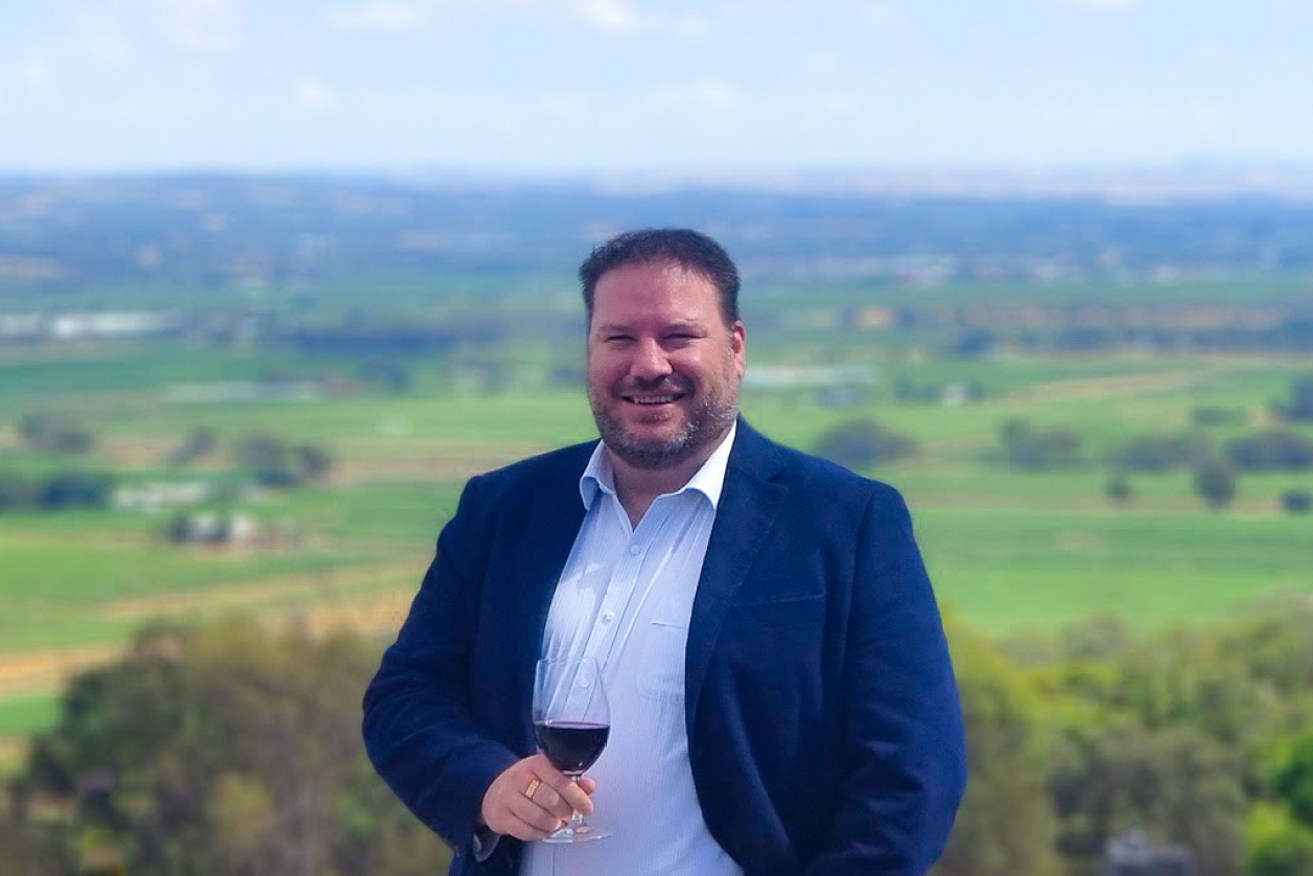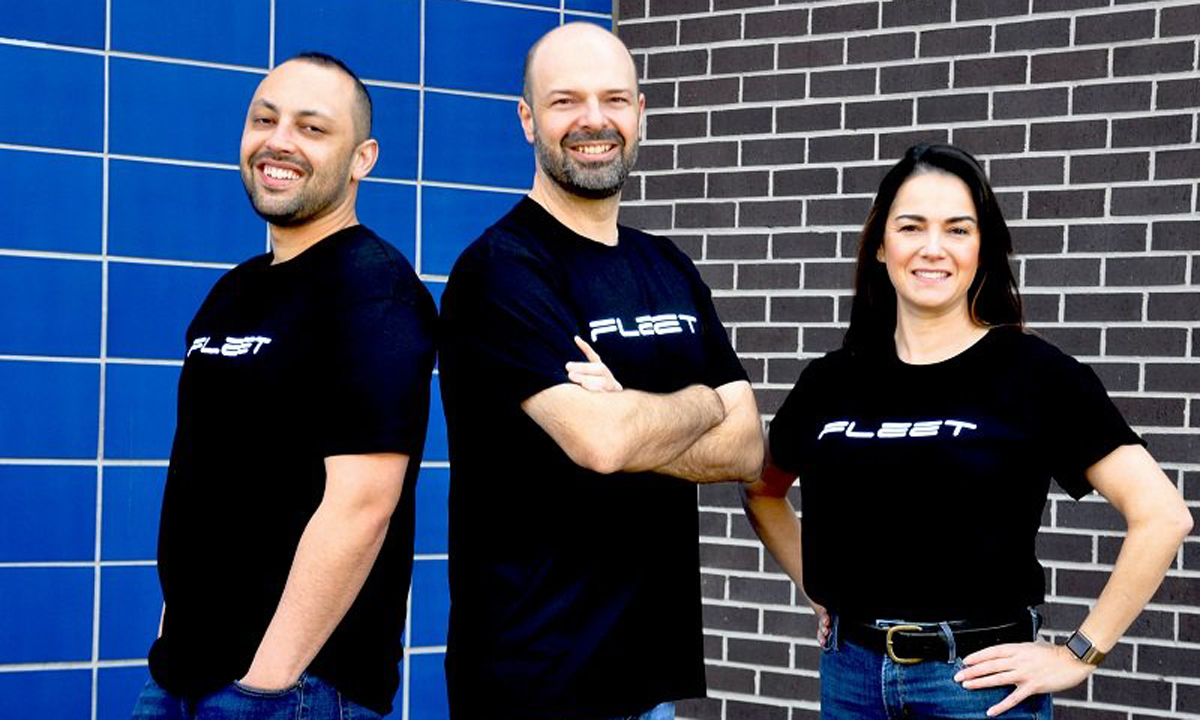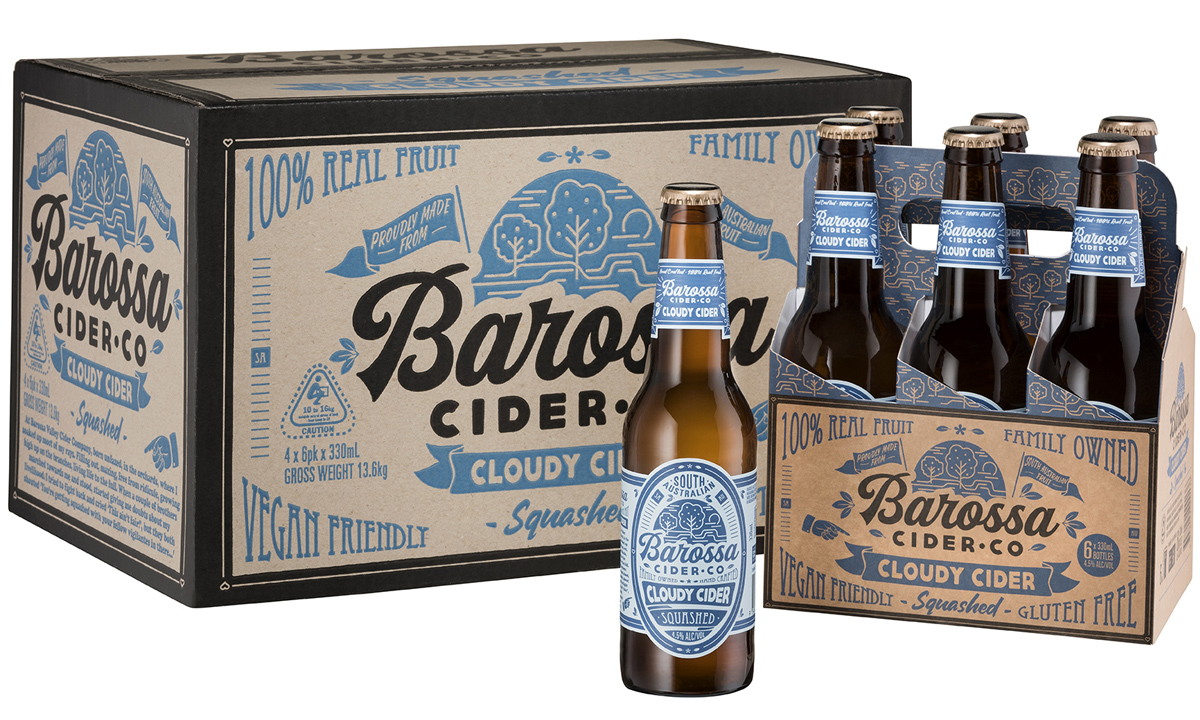Briefcase: Business snippets from around SA
In this week’s briefcase, an Oxford wine tech company establishes its Southern Hemisphere headquarters in the Barossa, Sparc Technologies partners with Fortescue on a green hydrogen project and a local drop wins Best in Show at the Australian Cider Awards.


Former Wine Industry Suppliers Australia chief executive officer Matthew Moate will head up Deep Planet's Australian operation in the Barossa.
- UK wine tech startup lands in the Barossa
- Sparc partners with Fortescue on green hydrogen project
- Fleet launches Houston expansion
- Major Agtech conference headed for Adelaide
- Energy company on hunt for apprentices
- Cider prizes for top Barossa drop
UK wine tech startup lands in the Barossa
A British agritech startup that uses satellite imagery and machine learning to predict vineyard health will establish its Australian headquarters in the Barossa.
Oxford-based Deep Planet has this month started its Australian operation with the appointment of an initial four positions.
It has employed former Wine Industry Suppliers Australia chief executive officer and Matthew Moate as head of sales.
Moate will be joined by three other staff – two business development executive roles and a project and events coordinator. Initially, the quartet will be based in Tanunda’s co-working facility, Workspace Barossa.
Founded by an Oxford University trio based in the UK and California, Deep Planet specialises in monitoring vineyards at scale to predict vine health, irrigation, yields and maturity with plans to further develop tools including automated disease, nutrition, and carbon baselining over the coming growing season.
It ran a pilot project in South Australia ahead of the 2021 vintage before deciding to establish a permanent presence in the major wine-producing state.
Co-founder and chief executive officer Sushma Shankar said the Barossa location made sense for the company’s national office, being central to other wine regions in South Australia and allowing Deep Planet to stay closely connected with growers and winemakers.
She said it was also central to Deep Planet’s southern hemisphere operations, which included clients in New Zealand.
“We want to invest and be seen in the regions as we are working with the wine industry and that’s where it is based. We also wanted to show how a start-up doesn’t have to be city-based,” Shankar said.
“South Australia is known for attracting tech start-ups and what we are doing at Deep Planet is taking viticulture and winery operations to the next level.
“By using satellite imagery, the technology can identify and forecast problems with disease, soil moisture and sugar levels, while also predicting grape tonnage by block and variety with 90 per cent accuracy.”
Sparc partners with Fortescue on green hydrogen project
Listed South Australian company Sparc Technologies has formed a joint venture with the University of Adelaide and Fortescue Metals to deliver a process for producing commercially viable green hydrogen.
Known as Sparc Hydrogen, the entity will use green hydrogen technology developed by the University of Adelaide’s Professor Greg Metha and team, and Flinders University.
The project will seek to further develop a process known as Thermo-Photocatalysis, which employs the sun’s radiation and thermal properties to convert water into hydrogen and oxygen.
Adopting this process to produce green hydrogen means that renewable energy from wind farms and/or photovoltaic solar panels and expensive electrolysers are not needed for this particular approach.
The technology can potentially be adopted remotely and for onsite use, reducing the reliance on long-distance hydrogen transportation or electricity transmission.
Fortescue Future Industries is an entity of Andrew Forrest’s Fortescue Metals and will take a 20 per cent stake in Sparc Hydrogen following its stage 1 investment, with Sparc maintaining a 52 per cent stake and the University of Adelaide 28 per cent.
At stage 2, FFI and Sparc will each have a 36 per cent interest.
FFI CEO Julie Shuttleworth said green hydrogen was a practical solution to decarbonise sectors such as heavy industry.
“The research being undertaken by Sparc Hydrogen is important for FFI’s growing technology portfolio as we develop technologies to lower emissions globally,” she said.
Sparc Executive Chairman Stephen Hunt said FFI was well placed to assist the development and commercialisation of the technology.
“Sparc is extremely excited to be working with a company of the calibre of FFI, which has demonstrated its credentials as being a world-leading company in green hydrogen,” he said.
Fleet launches Houston expansion

Fleet Space Technology’s new US team will be based in Houston.
Fleet Space Technologies has announced the first phase of its global expansion plans with the establishment of an international HQ in Houston, Texas.
The Adelaide company says the expansion to the US will bring large-scale market opportunities across industries including natural resources and energy.
Fleet is aiming to create the world’s most advanced low-power satellite network to secure planet-wide connectivity coverage for millions of devices through the implementation of smallsat technology.
“This technology has the potential for applications across multiple industries of significant strategic importance to the United States,” said Fleet Space Technologies CEO and Co-Founder Flavia Tata Nardini.
“The choice of Houston as an anchor location that feeds satellite offices in California and eventually the East Coast places Fleet at the heart of the world’s leading government space agency, NASA.”
The global expansion plans follow a $36 million Series B funding round in November.
In December, the Beverly-based company also announced plans to develop the world’s first constellation of fully 3D printed satellites with the first satellites ready for launch in 12 months.
The Alpha constellation will sit alongside Fleet’s existing Centauri network of six satellites, each about the size of a shoebox, that have been launched to orbit progressively since November 2018.
Major Agtech conference headed for Adelaide
Adelaide has been announced as the host city for evokeAG. 2023 – Asia Pacific’s premier agrifood tech event.
Following successful events in Melbourne in 2019 and 2020, evokeAG. organiser AgriFutures Australia, recently announced Adelaide as the host city for the event slated for 21-22 February 2023 in South Australia.
The two-day, full-scale, global event will see thousands of delegates and more than 110 speakers, thought leaders and startups discuss food sustainability, supply chain demands and ways to increase agricultural capacity and profitability across the Asia Pacific region.
The 2021 and 2022 events scheduled for Perth and Sydney were cancelled due to the coronavirus pandemic.
AgriFutures Australia Managing Director John Harvey said next year’s event will play an even more crucial role in powering globally relevant conversations within the agrifood tech ecosystem.
“The disruptive impact of the pandemic has highlighted serious shortfalls in our food security systems,” he said.
“There is an increasing sense of urgency around how we engage in global conversations, mitigate risk to our supply chain and challenge the conventions of what we grow, how we grow it and what we eat. Balance this with an extremely productive Australian agricultural landscape including big yields, and all-time high prices, evokeAG. 2023 event brings together a collision of opportunities and challenges with the best local and global minds to solve some of these issues.”
The state government predicts evokeAG. will create 70 jobs, generate more than 8000 bed nights and provide a $7.4 million economic boost to South Australia.
Event details including speakers, startup and investment programs, networking opportunities, and sideline activities will be released in the coming months.
Tickets will go on sale next month.
Energy company on hunt for apprentices
SA Power Networks has launched a new recruiting drive for apprentices, with 52 new positions available in metropolitan and regional locations in 2022.
The company, which manages the electricity distribution network across the state, will take on 40 new Powerline Apprentices and 12 Electrical Apprentices this year, the highest intake for a decade.
“The apprenticeships are a great opportunity as they offer metropolitan and regional roles for powerline workers and electrical workers,” said Head of Corporate Affairs, Paul Roberts.
“We have commenced a targeted promotional campaign for the first intake in March, and a further two intakes are anticipated for May and August 2022.
“Our high retention rate for apprentices and our low staff turnover overall, show that people in the business enjoy the work they do, the development opportunities that are provided and the strong and supportive culture we have.”
Powerline and Electrical apprenticeships are currently available in the Adelaide metropolitan area, as well as Powerline apprenticeships in a range of regional areas including the Riverland, Barossa, South East, Yorke Peninsula, Murray Bridge, Eyre Peninsula and Kangaroo Island.
Applications close February 13.
Cider prizes for top Barossa drop

Barossa Cider Co’s Squashed Cloudy Cider has been awarded ‘Best in Show’, ‘Best Australian Cider or Perry’ and ‘Best Specialty Cider or Perry’ in the New World Medium Sweet Class at the 2021 Australian Cider Awards, held last week.
Hosted by Cider Australia, the show is in its 10th year and celebrates excellence in the Australian cider category.
“As a family-owned business, we are really proud for this national recognition, making the past nine years of hard work worthwhile. It’s an exciting time for the industry, our brand and the innovation pipeline for the category we have in the works” said Barossa Cider Co Co- Owner and Director Oscar Bowen.
“Our aim when we started Barossa Cider Co was to produce the best possible easy drinking cider that would appeal to a broad demographic using only 100 per cent real Australian Apples and Pears.”
The Marananga business was established in 2013 after an idea around the dinner table that led to Oscar and Hugo Bowen travelling around Europe and the UK to conduct market research into the category.
It was there where they decided on a production style inspired by cider making techniques combined with family wine-making experience.
The tank fermented Squashed Cider uses luxe Champagne yeast and is available nationally through selected retailers including BWS and Dan Murphy’s.




